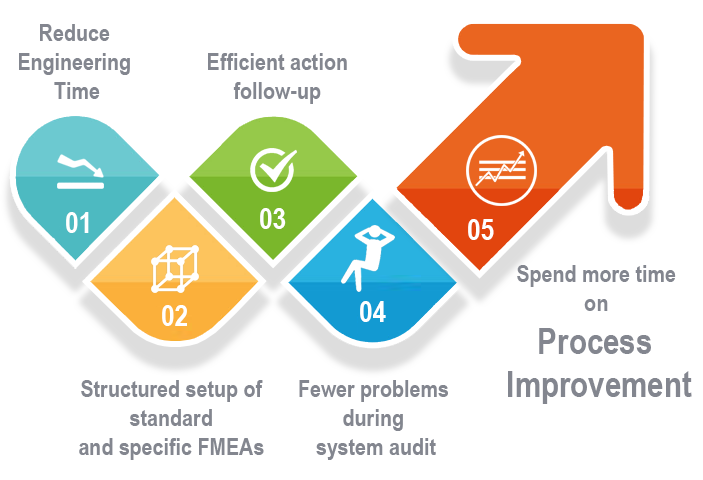 Failure Mode and Effects Analysis (FMEA) is a step-by-step approach for identifying all possible failures in a design, manufacturing or assembly process, or a product or service. It is a structured approach to discovering potential failures that may exist within the design of a product or process.
Failure Mode and Effects Analysis (FMEA) is a step-by-step approach for identifying all possible failures in a design, manufacturing or assembly process, or a product or service. It is a structured approach to discovering potential failures that may exist within the design of a product or process. FMEA is a proactive method of uncovering potential failures in business processes in order to prevent them by correcting the processes proactively rather than reacting to adverse events after failures have occurred. The process involves reviewing the steps in the process, identifying potential failure modes, determining the causes of the failure modes, and assessing the effects of the failure modes. FMEA is used during design to prevent failures and later it’s used for control, before and during ongoing operation of the process.
FMEA is not a substitute for good engineering, but it enhances good engineering by applying the knowledge and experience of a Cross Functional Team (CFT) to review the design progress of a product or process by assessing its risk of failure. FMEA is particularly useful in development and manufacturing organizations as an effective method of lowering the possible failures in phases of the product lifecycle.
